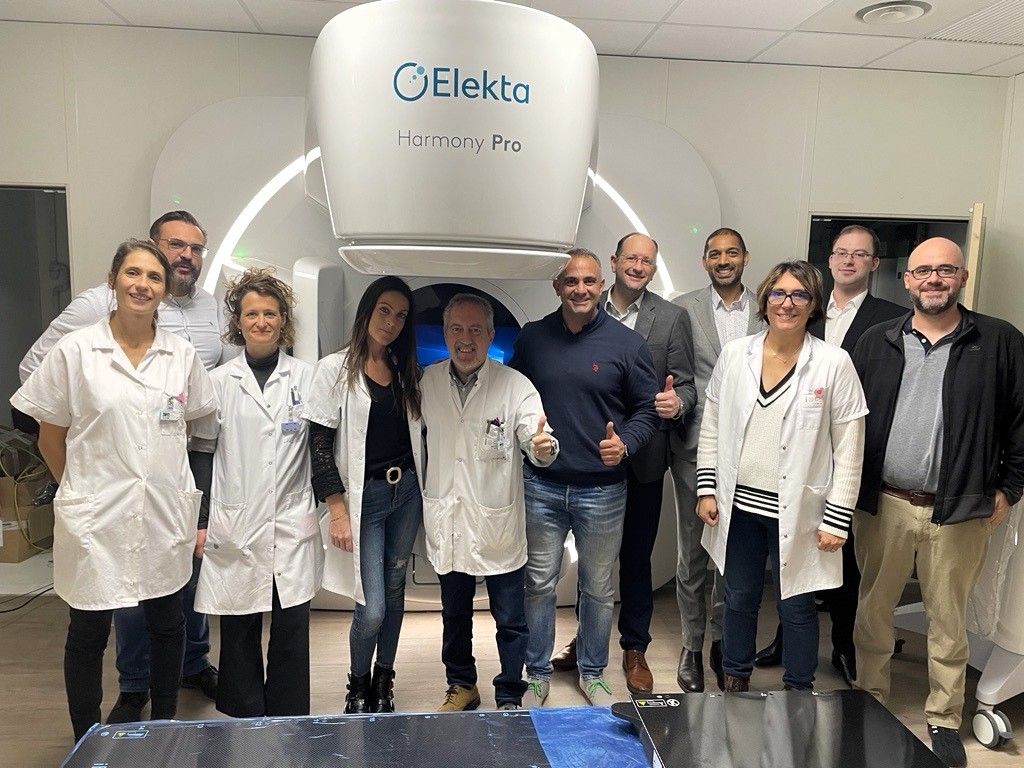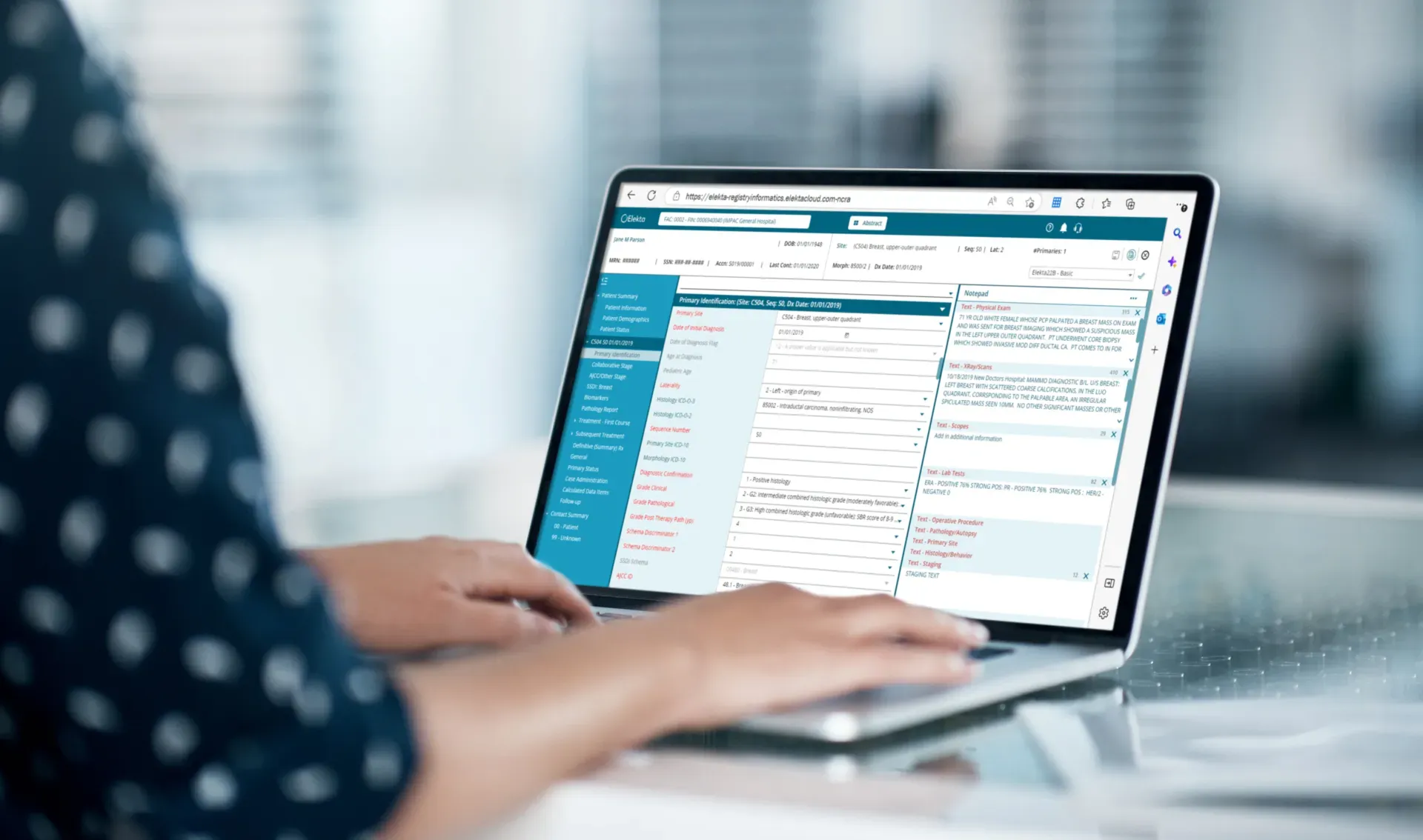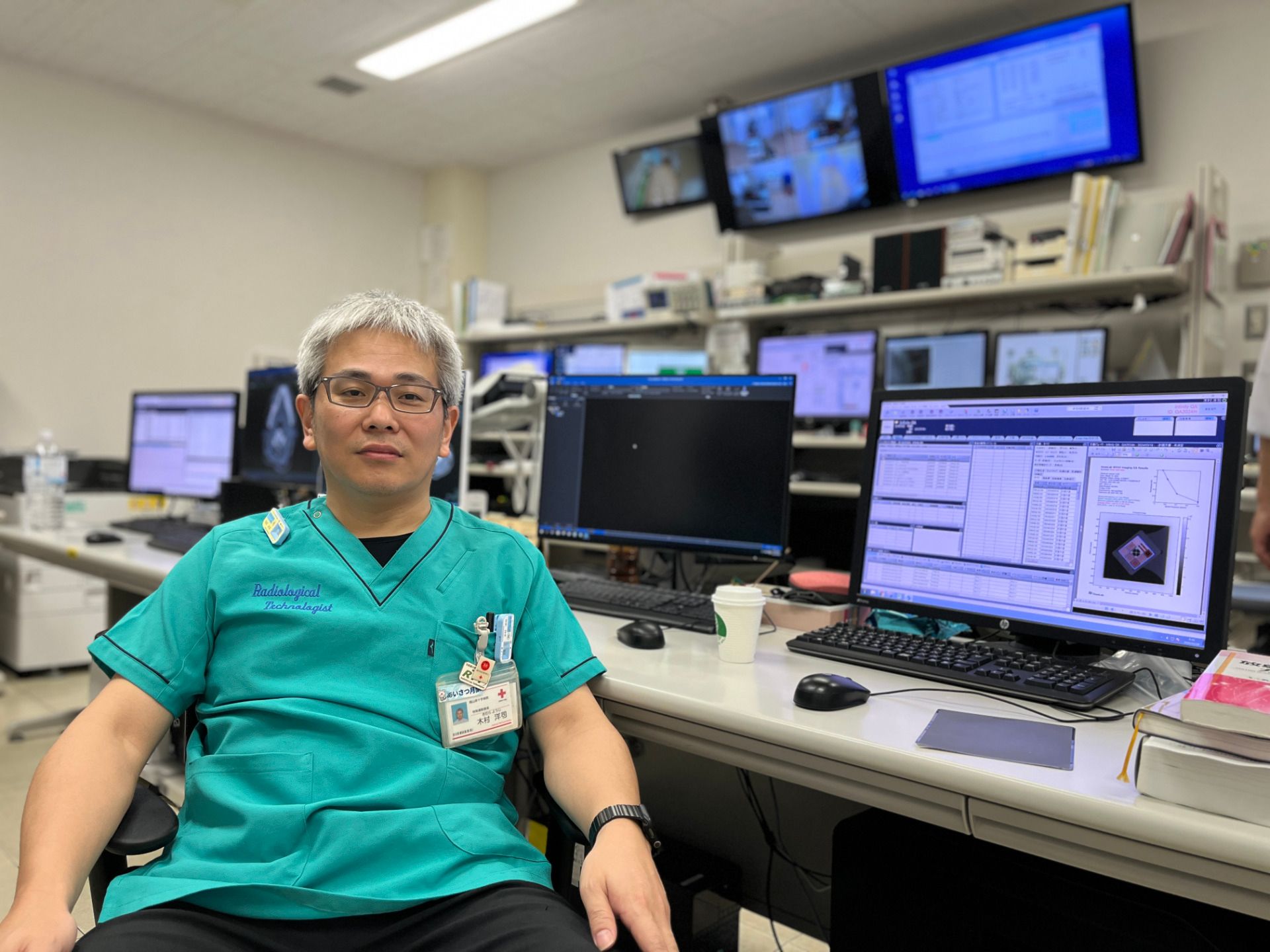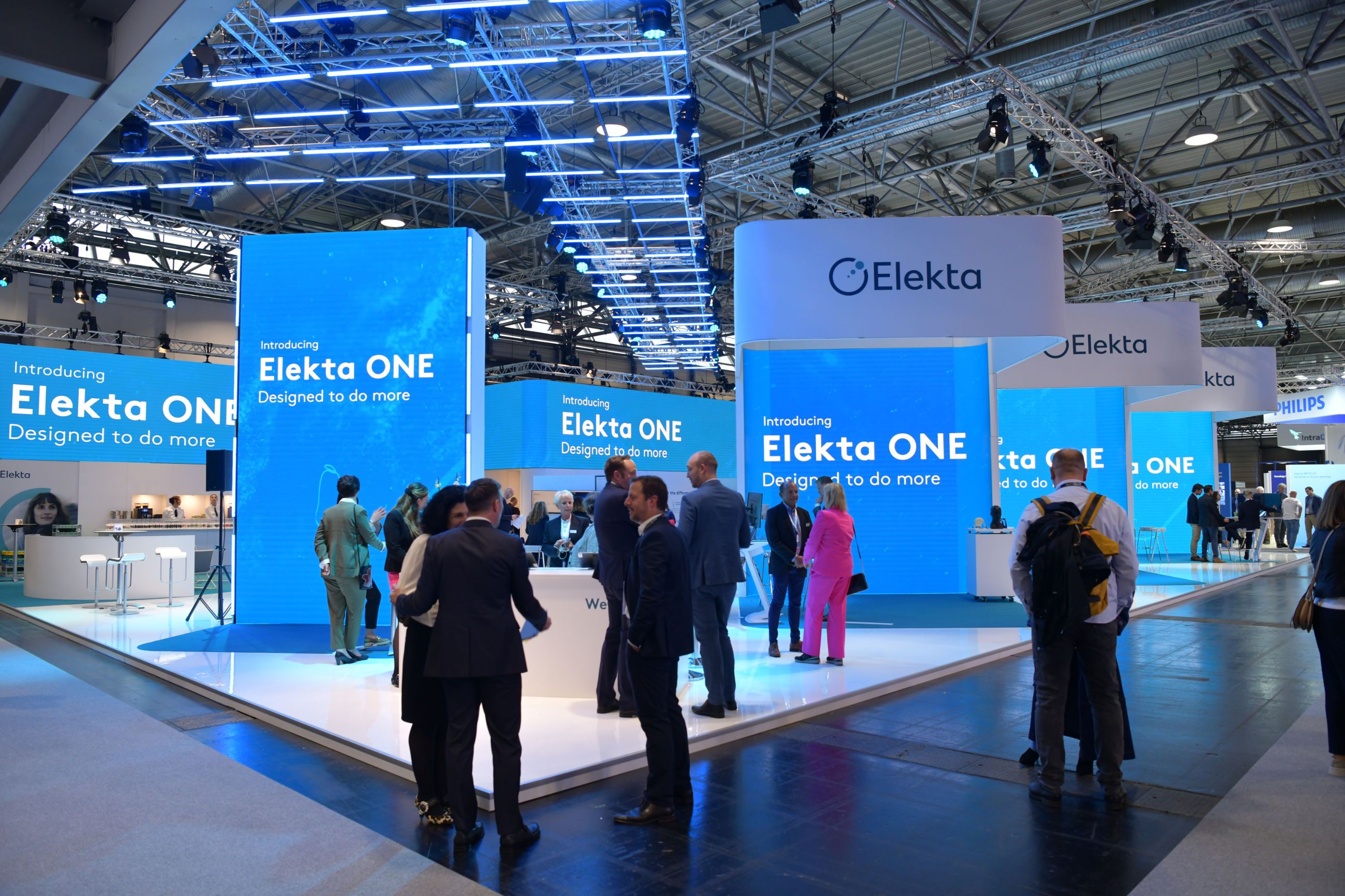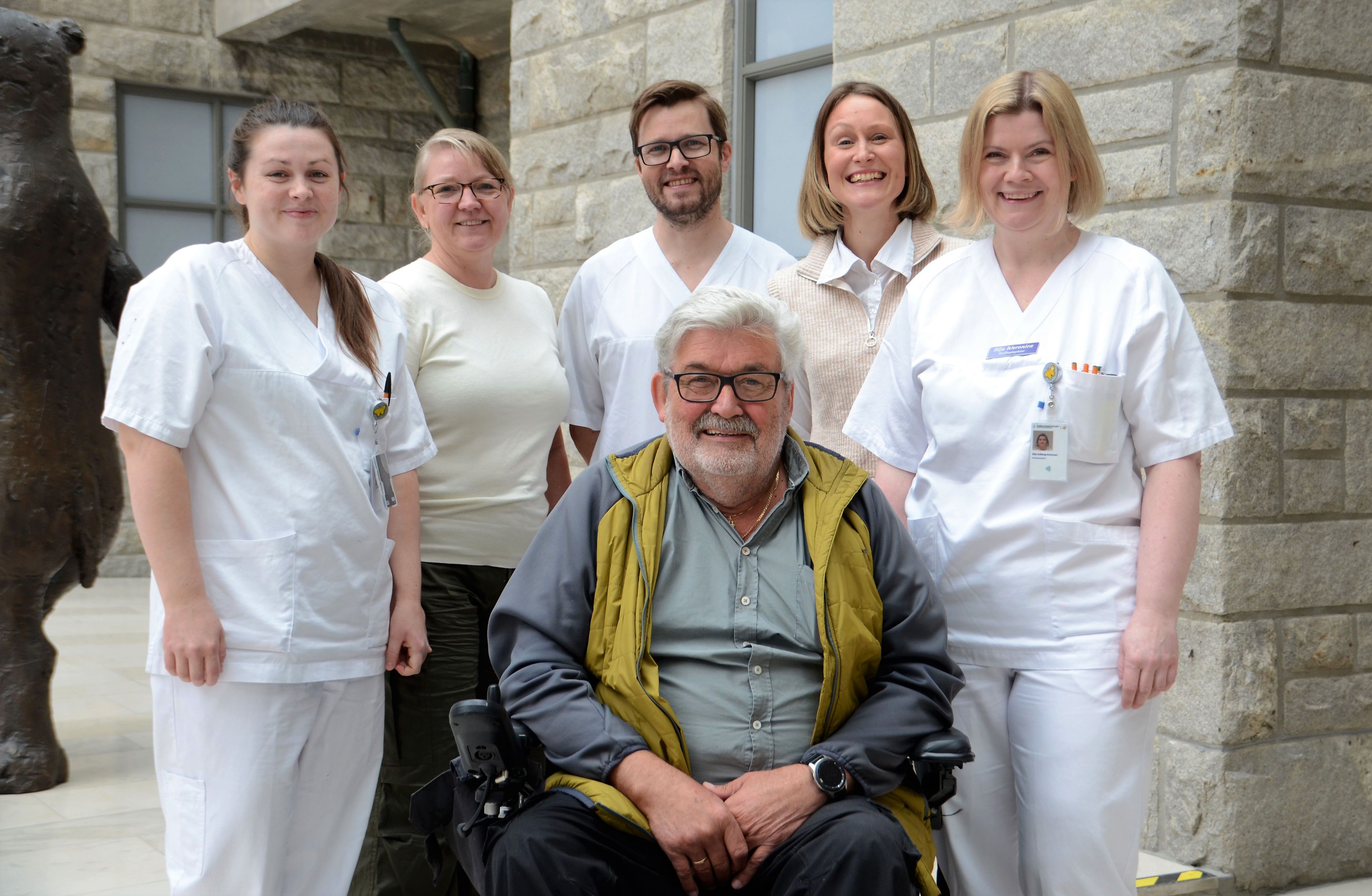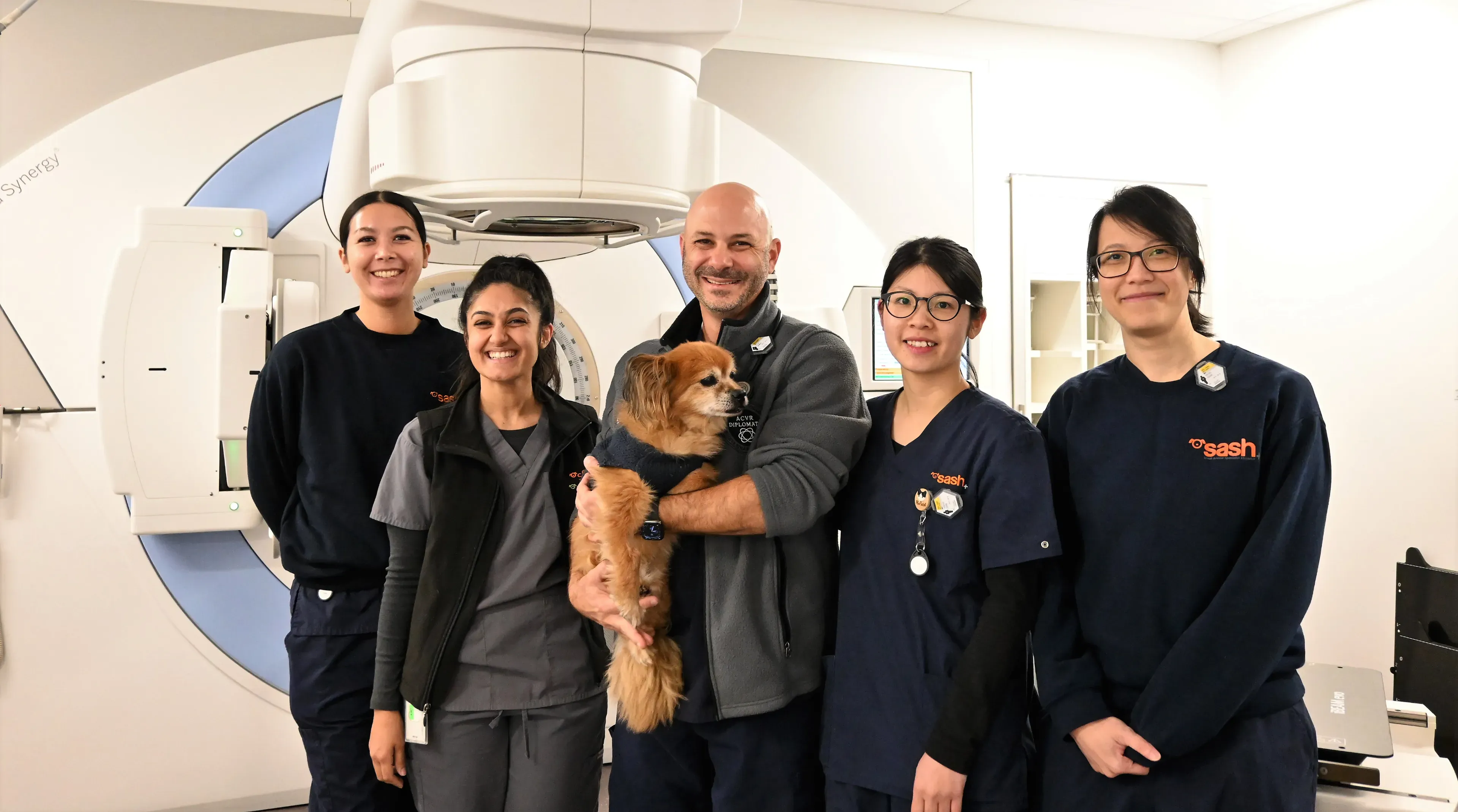Direct connection to patients helps Mexico hospital streamline care
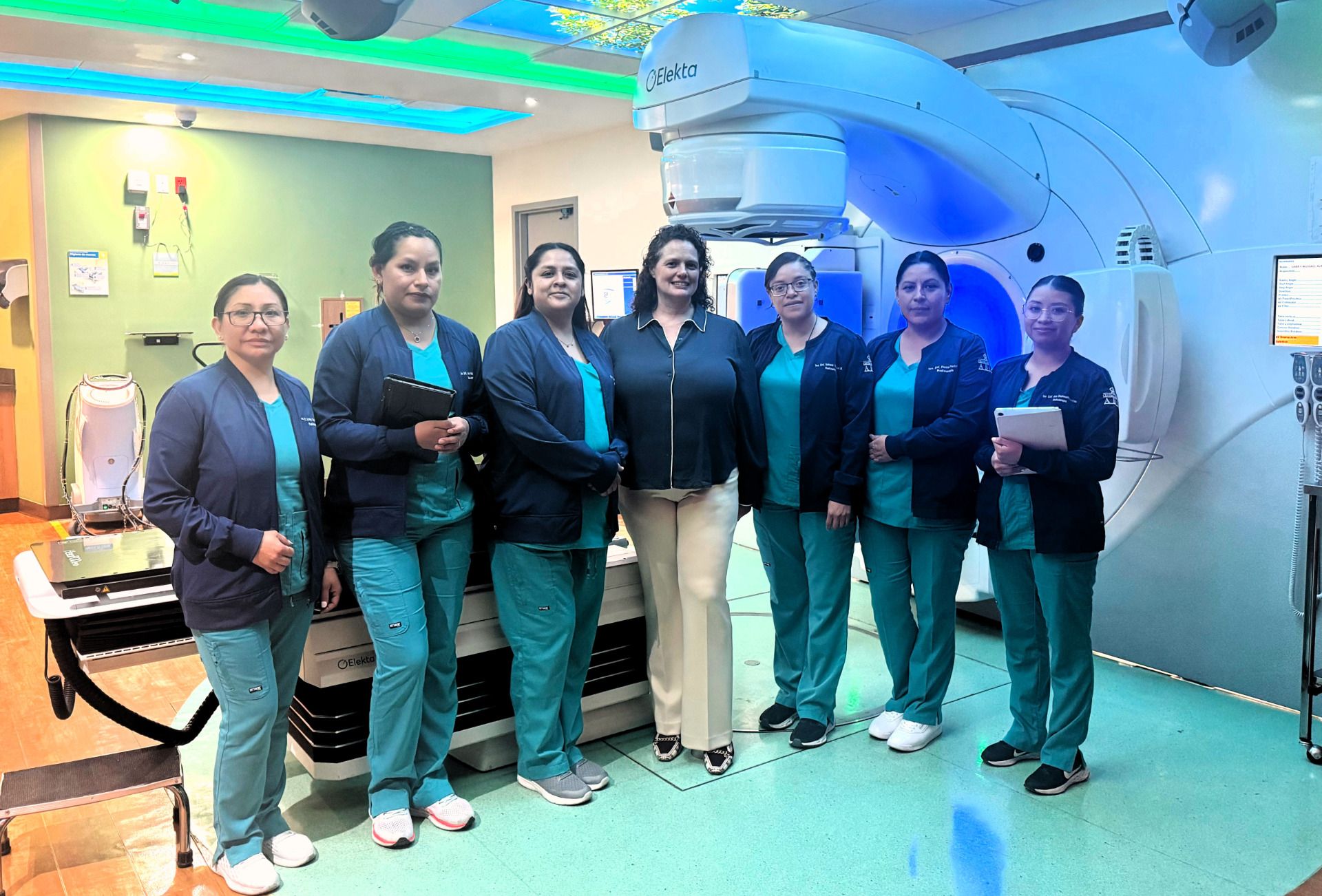
Centro Médico ABC leverages electronic patient-reported outcomes to enhance workflows and improve quality of life
Centro Médico ABC, one of Latin America’s top private hospitals1, is committed to high-quality, efficient care. To improve the patient experience and optimize resources, Dr. Dolores De La Mata, Chief of the Radiotherapy Department, turned to electronic patient-reported outcomes (ePROs) with Elekta ONE® Patient Companion.
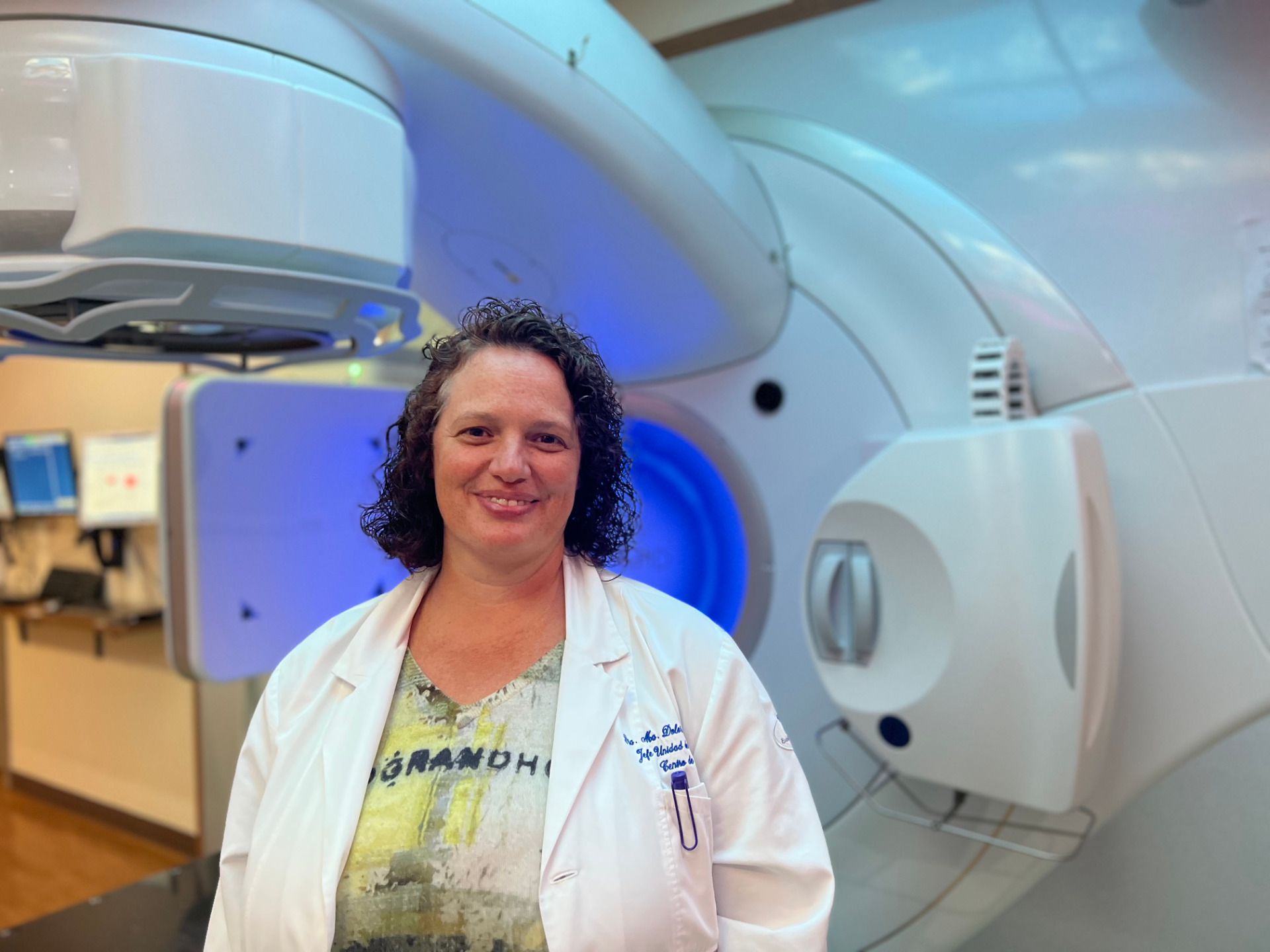
In Mexico, where 80 percent of the population has mobile phones and internet access, adopting tools like ePROs is easier than expected. “What I admire about Latin America is their openness to embrace new tools that make a difference,” Dr. De La Mata says.
Patient Companion creates a secure, direct connection between patients and their care teams, allowing them to share real-time updates on their symptoms using ePROs. This helps clinicians track changes, make informed treatment decisions, and provide more personalized care.
By integrating ePROs into their clinical workflow, Centro Médico ABC has streamlined the care process for patients and clinicians alike.
Improving clinical workflow
As an easy-to-use mobile app, Patient Companion was easy to implement. “Our team quickly saw its potential to streamline communication and improve care,” Dr. De La Mata observes.
“Patient Companion strengthened relationships between nurses, patients, and the rest of the care team, making the experience more personalized.”
Before using ePROs, the oncology department was worried that nurses and patients might resist this new approach. But it was just the opposite. “Patient Companion strengthened relationships between nurses, patients, and the rest of the care team, making the experience more personalized,” Dr. De La Mata shares.
Here’s how ePROs fit into their workflow:
First introduction: During a patient’s first consultation, Dr. De La Mata introduces the app, explaining how it’ll be used during treatment to track symptoms, address concerns, and gather information on treatment-related toxicity.
Patient education and enrollment: At the simulation appointment, the nurse goes over basic care during treatment and reminds them how the app works. If the patient agrees, they sign an informed consent form and are registered in the system.
Follow-up support: At the first treatment session, the nurse checks if the patient is comfortable using the app. Dr. De La Mata also asks if they’ve completed the questionnaires, which they review together.
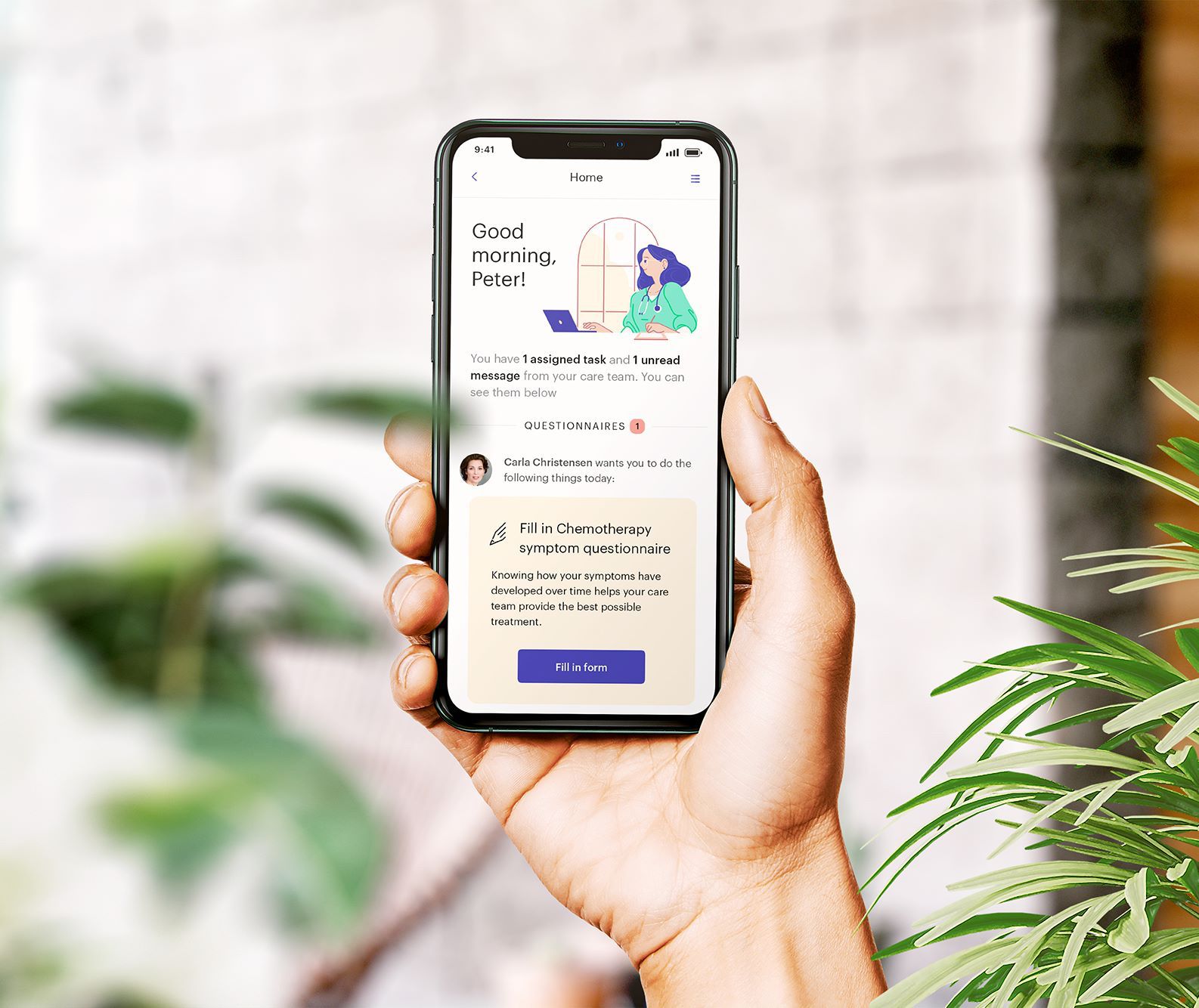
Dr. De La Mata notes: “When nurses and physicians actively discuss Patient Companion, patients are more likely to use the app. Without follow-up, patients might enroll but not regularly complete the questionnaires.”
Ongoing monitoring: During weekly consults, Dr. De La Mata reviews symptoms and toxicity levels with patients. Its color-coded symptom indicators help reassure patients. “When patients see green, they know the symptom is normal. If it’s red, the nurse reviews it immediately and sends a message, ensuring the patient feels cared for,” she explains.
Top benefits for Centro Médico ABC
Reduce administrative burden and improve communication
Before Patient Companion, Centro Médico ABC relied on paper forms or fragmented notes. By automating symptom tracking and questionnaires, and centralizing patient-reported data, ePROs have reduced the time spent on paperwork and repetitive tasks. “Now, we get clear, real-time patient updates that help us make better decisions,” Dr. De La Mata says.
ePROs reduce the need for time-consuming phone calls and follow-ups, allowing clinicians to focus on specific concerns that require attention.
“We get clear, real-time patient updates that help us make better decisions.”
“Patients often asked the same questions about skin reactions, fatigue, or other symptoms. Explaining these over and over again was time-consuming and contributed to burnout,” Dr. De La Mata observes. “With Patient Companion, we’ve reduced this repetition by about 50 percent.”
The app provides patients with education and support materials, preventing them from relying on inaccurate online searches or well-meaning but uninformed advice from friends and family. “When patients have access to accurate, high-quality information, they stop wasting time on advice from non-experts. The app becomes their source of truth,” Dr. De La Mata explains.
Help patients feel heard and supported
The app’s intuitive design, with features like color-coded symptom indicators, makes it easier for patients to understand their condition. This boosts their confidence and makes the treatment process less stressful.
“The app is simple to use, with clear questions about symptoms and helpful treatment information.”
A patient of Dr. De La Mata shared their experience of using Patient Companion: “the app has been very useful in monitoring my side effects during and after radiotherapy treatment. It also keeps my medical team updated on how I’m doing. It’s simple to use, with clear questions about symptoms and helpful treatment information. Together with my medical consultations, it helps me better understand what’s going on, what is and isn’t normal, and what to expect.”
Improving patients’ quality of life
Patient Companion helps patients focus on their wellbeing by avoiding unnecessary hospital visits. It also allows the oncology department to monitor their long-term side effects remotely, ensuring patients get the follow-up care they need without any extra hassle.
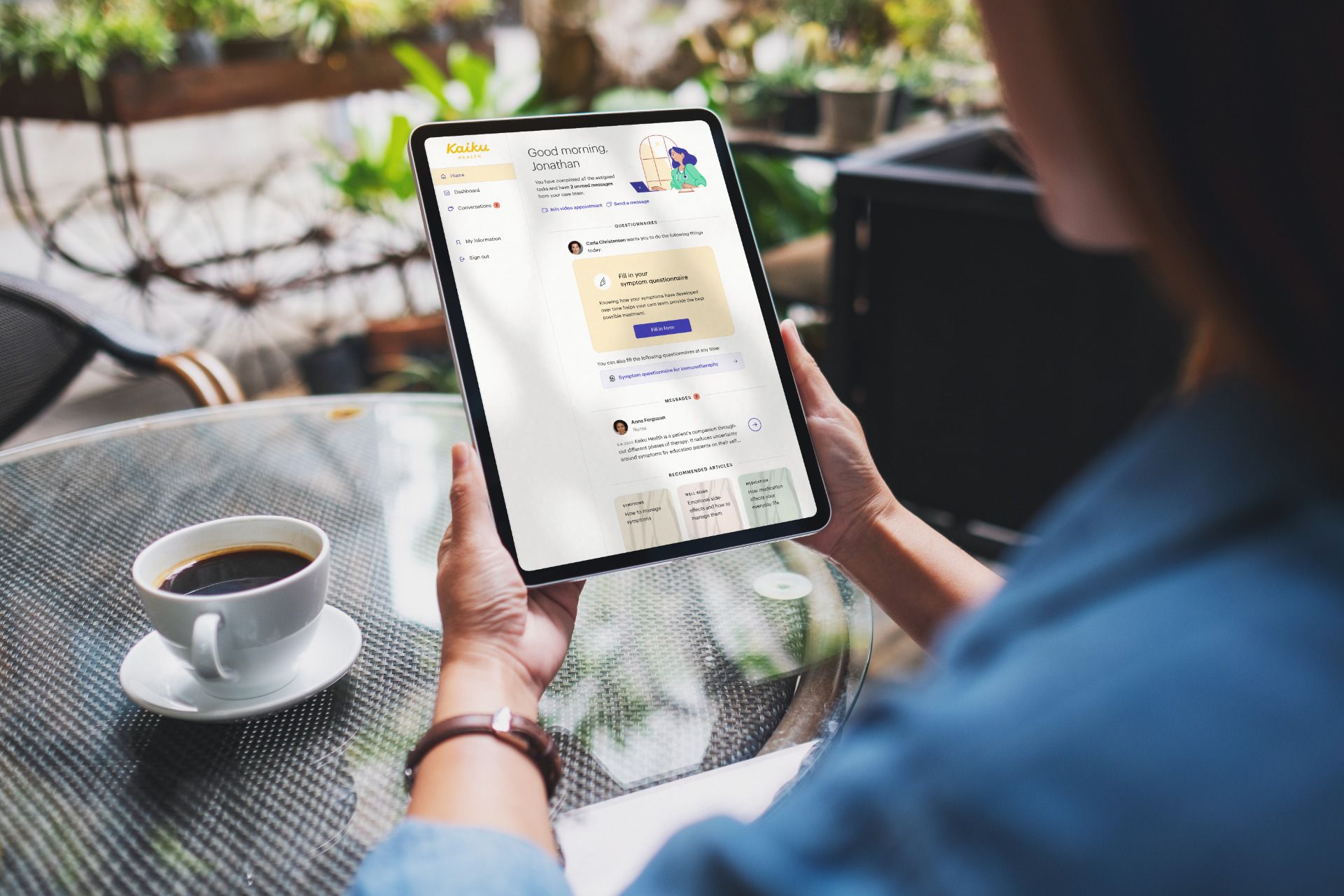
“For patients, the ultimate goal is to improve their quality of life while alleviating the fears and anxieties that come with cancer treatment,” Dr. De La Mata says.
One breast cancer patient shared how the app allowed her to manage an unexpected skin reaction without frequent trips to the hospital. She sent daily updates and photos directly through the app, saving time and avoiding stress. As a single mother balancing work and family, she valued how Patient Companion allowed her to prioritize her health without compromising her other responsibilities.
“Many times, we underestimate these things, but time and quality of life for patients is so important,” Dr. De La Mata notes.
Driving clinical research forward
Patient Companion collects real-time patient data that is accurate, detailed, and actionable, allowing researchers to zero in on specific issues, like toxicity levels, and eliminate guesswork. “Patient Companion translates information from both patients and physicians into clear, quantifiable metrics—like grading skin reactions from level one to three,” Dr. De La Mata says. “It brings the objectivity we’ve been missing in trials and toxicity profiles.”
“Patient Companion translates information from both patients and physicians into clear, quantifiable metrics.”
Integrated with Elekta ONE OIS, Patient Companion ensures the data is instantly accessible to both clinicians and researchers. As Dr. De La Mata puts it: “ePROs are essential for improving patient care and driving meaningful progress in research. If we focus on this data, we’ll make big leaps forward.”
The future of patient-centered cancer care
ePROs are transforming radiotherapy and oncology by improving patient satisfaction, data quality, and research.
By adopting ePROs, healthcare providers ensure that patients, regardless of their location or circumstances, receive the best care possible. ePROs aren’t just a tool—they’re part of a shift toward smarter, more efficient, and more inclusive cancer treatment.
Learn more about Elekta ONE Patient Companion.
1 Newsweek. (2025, January 24). Latin America's top private hospitals 2025. Newsweek.
* Elekta ONE | Patient Companion powered by Kaiku Health is not available in all markets.
LARONE250327
